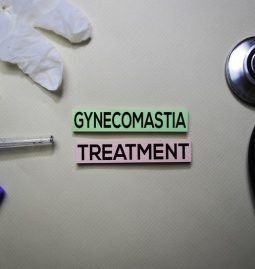When it comes to catering to the needs of older adults, a good daycare facility is much more than a place to pass the time. It’s a community that offers a range of activities aimed at keeping its members engaged, healthy, and happy. From stimulating mental exercises to physical fitness and social opportunities, the right blend of activities can greatly contribute to the well-being of those who attend. Let’s explore what makes an adult daycare vibrant and enriching for its participants.
Activities in Day Care for Adults
To truly benefit adults attending a day center, adult day care programs must encompass a wide array of activities that address various aspects of health and happiness. From physical and cognitive activities to socialization and personal interests, the program should illustrate a holistic approach to adult care.
1. Physical Fitness and Exercise
Staying physically active is paramount for maintaining health in later years. A good adult daycare should offer activities that encourage movement and cater to various fitness levels. Here’s what they might include:
- Group Exercises: Classes like chair yoga, tai chi, or light aerobics that are tailored to seniors’ abilities.
- Walking Clubs: Supervised walks, either indoors or outside, helping to promote cardiovascular health.
- Balance and Strength Training: To help prevent falls and maintain mobility.
2. Mental Stimulation
Keeping the mind sharp is just as important as physical fitness. A variety of cognitive activities can help adults maintain their mental agility:
- Brain Games: Puzzles, memory games, and quizzes to engage the mind.
- Art and Music Therapy: Creative outlets that have been shown to improve mental health and cognitive function.
- Book Clubs and Reading Groups: Encouraging discussion and social interaction while stimulating the mind.
3. Life-Skill Development
Some adults may benefit from activities that help them maintain their life skills. These can include:
- Cooking Classes: Simple recipes that remind or teach how to prepare healthy meals.
- Gardening Clubs: Whether it’s indoor container gardening or an outdoor garden, this can be both therapeutic and rewarding.
4. Social and Recreational Activities
Social interaction is crucial for emotional well-being. Here are some activities designed to foster connections:
- Group Outings: Trips to local attractions, parks, or events can offer a change of scenery and a breath of fresh air.
- Themed Parties and Celebrations: Recognizing birthdays, holidays, and other milestones.
- Craft and Hobby Groups: Shared interests build camaraderie and provide a sense of accomplishment.
The senior day care setting should be both convenient and comfortable, contributing to a welcoming atmosphere where adults feel happy to spend their day. The location should be accessible, safe, and designed to cater to the physical needs of its attendees.
5. Encouragement of Personal Interests
Individuality should be nurtured even in a group setting. Activities should include time for:
- Personal Reading or Meditation: Quiet corners for those who value alone time.
- Hobby Workshops: Catering to a variety of interests, such as model building, knitting, or photography.
6. Health and Wellness Monitoring
Monitoring the health of attendees is a key function of quality daycare for adults. This involves:
- Regular Health Checks: Scheduled assessments by healthcare professionals.
- Nutritional Advice: Ensuring that dietary needs are met and providing education on healthy eating habits.
- Medication Management: Assistance with taking medications on time and as prescribed.
7. Home Care Integration
For those not able to attend a facility or need additional support at home, a service such as a home care agency in Philadelphia can provide valuable assistance. These agencies work to enhance the quality of life at home, complement the services of an adult day care, and ensure a continuum of care.
8. Inclusive and Supportive Environment
Inclusivity and support should be the backbone of any adult daycare. It should offer:
- Adaptive Equipment: Recognizing and accommodating individuals with physical limitations, an inclusive adult day care provides adaptive equipment. This ensures that everyone, regardless of their physical capabilities, can actively participate in the various programs and activities offered.
- Cultural Sensitivity: A truly inclusive adult day care celebrates diversity by incorporating activities that acknowledge different backgrounds and traditions. Cultural sensitivity is paramount, fostering an environment where participants feel respected, understood, and represented in the array of offerings.
- Staff Training: The backbone of an inclusive adult day care is a highly-trained and compassionate staff. Team members should undergo continuous training not only in providing exceptional care but also in emergency response. This ensures that staff members are well-prepared to assist participants in any situation that may arise.
Conclusion
A well-rounded adult day care provides a harmonious blend of physical, cognitive, and social activities tailored to the individual needs and preferences of its attendees. The provision of regular health checks, dietary advice, and management of medications, coupled with a strong connection to the home care community, ensures a comprehensive care experience. No day is the same, with a variety of engaging activities fostering a sense of purpose, belonging, and joy.
A nurturing, inclusive environment is not just beneficial but necessary to promote the overall well-being of older adults. As such, these centers play a vital role in enriching the lives of those they serve every day.








